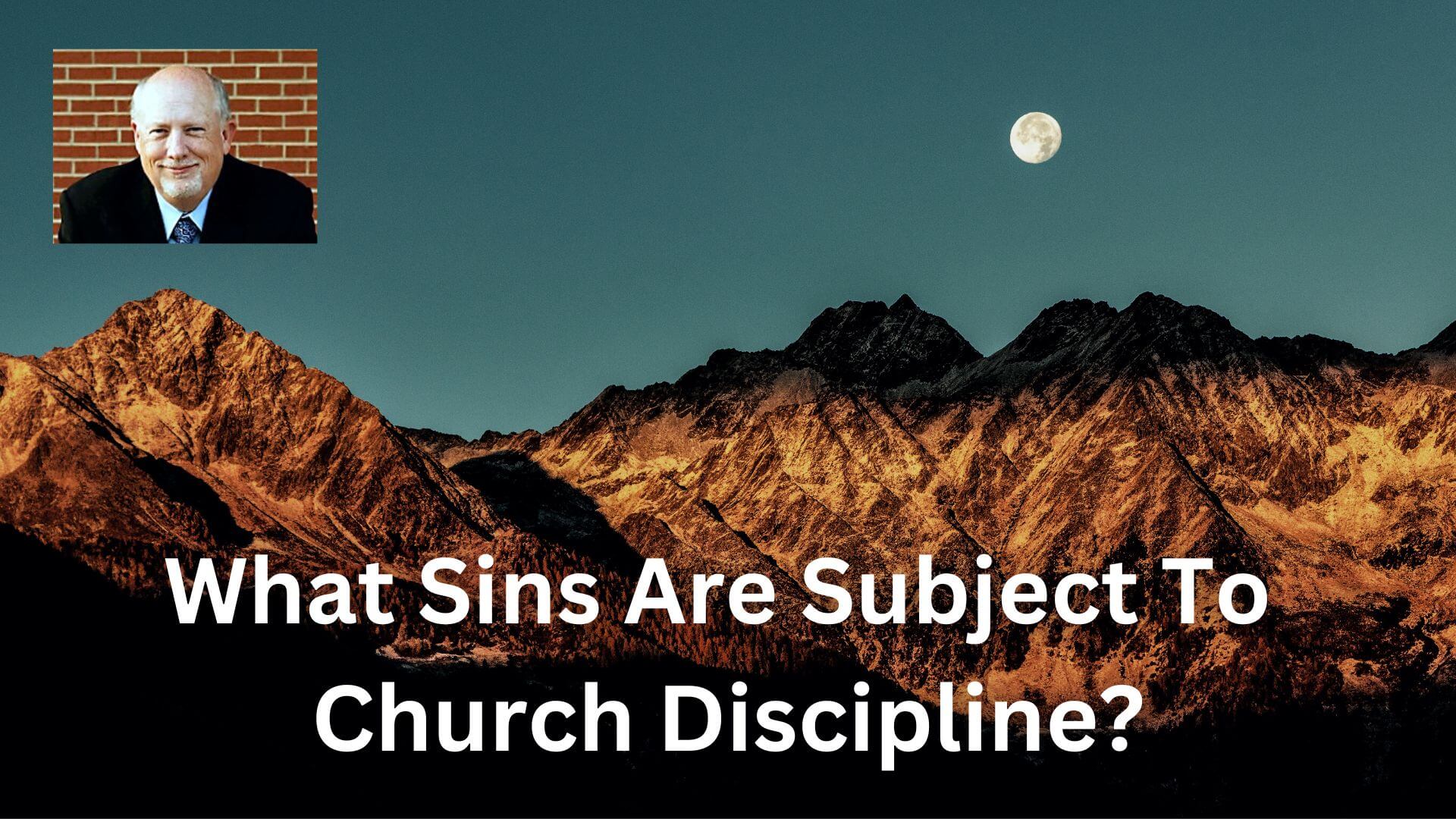What Sins Are Subject To Church Discipline?

Three primary passages in the New Testament provide instruction about church discipline. They are Matt. 18:15-22, 1 Cor. 5:1-13 and 2 Thess. 3:6-15.
Care must be taken not to add or subtract from what the Word of God says in these three passages based on preconceived ideas, tradition, or faulty interpretation.
Matthew 18:15-22 is the most recognized of the three key passages. It provides a template for dealing with private sins associated with interpersonal conflict.
In Matt. 18:15a Jesus said, “If your brother or sister sins, go and point out their fault, just between the two of you.” Jesus was referring to a personal matter between two individuals. That much is clear. However, some translations add the phrase “against you” after the word “sins.” This would lead to the conclusion that Jesus was referring to an interpersonal conflict or offense. This interpretation is further bolstered by Peter’s question in Matthew 18:21. Having heard what Jesus said in verses 15-20, he asks, “Lord, how many times shall I forgive my brother or sister who sins against me? There is no question as to the words “against me” in this verse. Peter clearly understood that verses 15-20 concerned interpersonal conflict or offense. Of course, there is a process outlined Matt. 18:15-17 that could eventually come to the attention of the church if it is not resolved.
In contrast to the Matthew passage, the other two New Testament passages that deal with the matter of discipline contain plural pronouns in the Greek text that are translated as “you” in English (1 Cor. 5:1; 2 Th. 3:6). These two passages cover matters of public sin that concerns the whole church.
In 1 Cor. 5:1-13, Paul lists six specific public sins. They are sexual immorality (1 Cor. 5:1), greed, idolatry, sander, drunkenness, and swindling (1 Cor. 5:11). All are openly identifiable. Sexual immorality can only be addressed if it is openly undeniable. Greed would only be apparent from acts of stealing or embezzlement. Idolatry would only be obvious from idolatrous public worship. Slander would be open for all to see. Likewise, public drunkenness is in view. Finally, cheating, or swindling others would involve observable acts. Other unnamed public sins are also in view based on what Paul said in 1 Cor. 5:11 where he said, “Do not even eat with such people.” Paul means in such cases as he has already named. However, there is no step-by-step process such as found in Matt. 18:15-22 that is mentioned in this context. It is often assumed, but we must not impose something on this passage that is not mentioned. Paul simply commands the church to act on matters of public sin. This does not mean that church leadership should not follow a pattern such as specified in Matthew eighteen, but that it is not required. This is important because oftentimes those involved in open sin have already separated themselves from association with the church and the steps of Matthew eighteen may not be possible to execute.
In addition to Paul’s list of public sins in 1 Corinthians 5, there is another specific public sin mentioned in 2 Thess. 3:6-15. In this passage, Paul addressed the practice of some who refused to work and imposed on other Christians to provide for them. Paul called this sin “disorderliness (2 Thess. 3:6) and it should be handled like the other public sins mentioned in First Corinthians five.
There is also nowhere in scripture that indicates that it is the church’s role to discipline internal attitudes, emotions, lusts, sinful thoughts, and the like. However, we must keep in mind that such internal sins are subject to God’s discipline of the individual and will to go unaddressed (Heb. 12:5-8).
Whether it is a personal sin that reaches the final stage of church discipline or a more overt act that is dealt with more directly by the leadership of the church, the result of church discipline is the same. Matthew 18:18 requires the disciplined party to be considered an unbeliever. First Corinthians 5:5 recognizes the same reality in terms of delivering someone to the realm of Satan. The practical consequence of both private and public sin is the withdrawal of fellowship (Matt. 18:18; 1 Cor. 5:9-10; 2 Th. 3:6; 10).